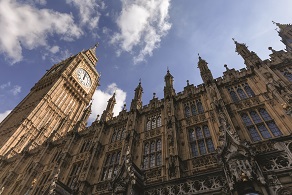Government admits significant savings still needed to ensure NHS sustainability
Its response to the Lords Select Committee report on NHS and adult social care sustainability reaffirmed government support for the founding principles of the NHS, including ensuring care is free at the point of delivery.
Many of the Lords’ recommendations called for sustained and transparent increases in funding, but the government defended its record on investment in health and care. In the face of unprecedented challenges relating to the growing and ageing population and to maintain services free at the point of use, it had committed to a real-terms increase in the NHS budget of £10bn in the 2015 spending review.
It had increased NHS resource spending by £2.8bn between 2017/18 and 2019/20. And in the recent planning guidance, a further £540m had been identified for 2018/19. Capital spending of £3.5bn had been announced for the next five years. Social care spending will also rise by more than £2bn over three years.
Despite the extra investment, the introduction of new models of care and local partnerships, health minister Lord O’Shaughnessy said efficiency gains were still important.
‘As the committee’s report makes clear, significant efficiencies will need to be delivered and I do not underestimate the scale of this challenge, even with achievements made by the NHS to date,’ he said. ‘We will continue to ensure every pound of NHS spend has the greatest possible impact on patient care, building on an unprecedented five consecutive years of productivity improvements in the NHS.’
The government will try to support the health service to deliver these efficiencies, he added. The autumn Budget included £200m of capital to support efficiency programmes that give staff more time to treat patients.
The response also backed the national tariff as a means to drive up productivity, including the adoption of best practice. Responding to a recommendation on giving financial incentives for increased productivity and the uptake of innovation, the government said the tariff, the sustainability and transformation fund and the NHS England 10-point efficiency plan were the main means of delivering this. The tariff helped providers and commissioners deliver the most efficient, cost-effective care to patients.
The Lords recommended greater consistency in the allocation of funding to health and social care, which they said should at least rise in line with GDP. This would reduce volatility in overall funding levels and aid alignment of the services.
The response agreed stability and certainty in funding were desirable, but sidestepped linking annual spending hikes to GDP. Decisions on health and social care funding would be taken at the next spending review, it said. It pointed out that in the Better Care Fund the contribution from the NHS to adult social care must be maintained in line with inflation.
Related content
We are excited to bring you a fun packed Eastern Branch Conference in 2025 over three days.
This event is for those that will benefit from an overview of costing in the NHS or those new to costing and will cover why we cost and the processes.